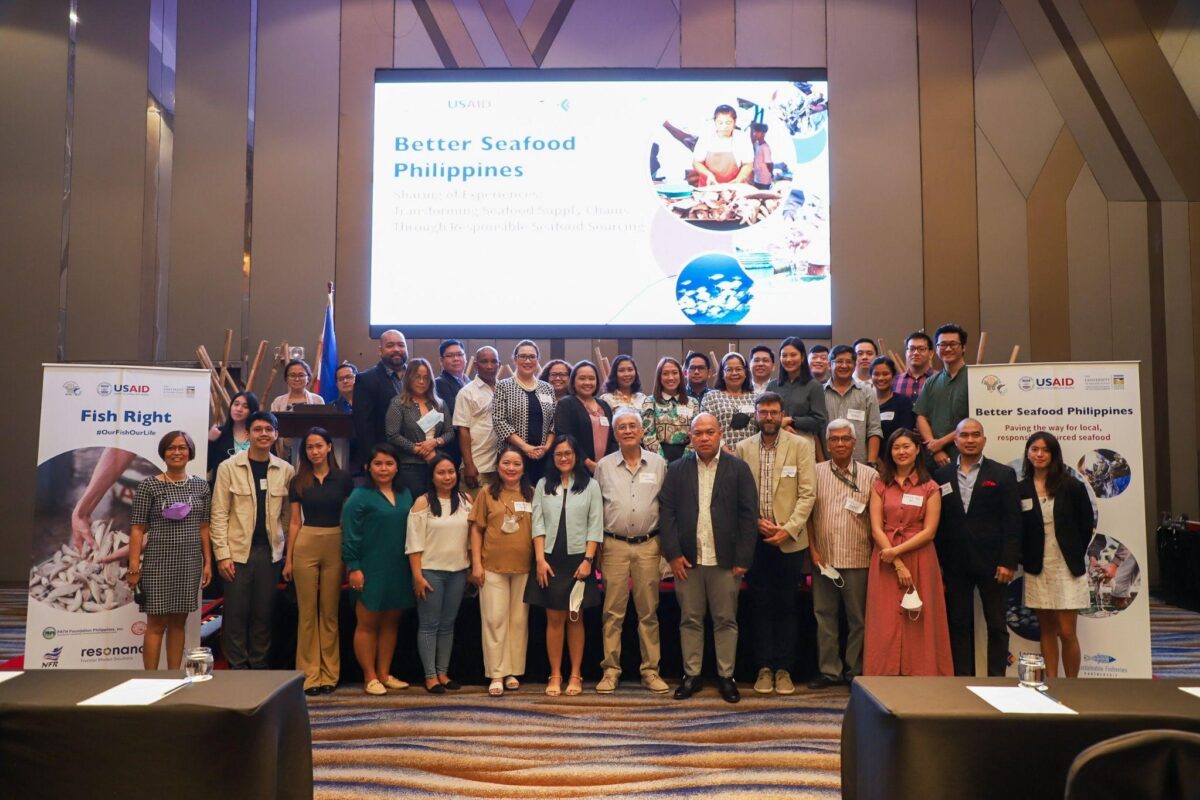Quezon City – USAID Fish Right and U.S. registered non-profit Sustainable Fisheries Partnership (SFP) gathered 36 stakeholders, including industry leaders of the seafood supply chain, to promote best practices of Responsible Seafood Sourcing (RSS) in the Philippines.
Earlier this year, 12 companies committed to adopting and implementing RSS into their supply chains to become sustainable seafood leaders around the country. The event in Quezon city allowed stakeholders to share their experience implementing RSS into their supply chains – including developing business insights and identifying best practices for RSS.
Representatives from Fishta Seafood, Inc., City of Dreams Manila, Busuanga-based Bogtong Fish Processors Association and others highlighted the importance of multi-stakeholder and multi-sector collaboration in achieving a traceable, transparent, and sustainable seafood supply chain. This also served as an opportunity for industry partners to learn about assessing their current supply chains using the RSS Standard, an industry tool developed by SFP through the USAID Fish Right.
Responsible Seafood Sourcing (RSS) is a tool designed to deter Illegal, Unreported and Unregulated (IUU) fishing and adapt seafood sustainability goals to the Philippines’ realities.
BFAR OIC National Director, Atty. Demosthenes Escoto, expressed the Bureau’s staunch commitment to a balanced and equitable development in the fisheries sector “The DA-BFAR is one with our stakeholders in the seafood industry in advancing and adopting responsible seafood sourcing.”
He added “RSS also encourages increased transparency in the supply chain by strengthening our comprehensive effort in the traceability system which complements our longstanding campaign against IUU fishing.”
In a call to action, SFP’s Fisheries Markets Director, Pedro Ferreiro, said “Industry members should be accountable and responsible of their own supply chains, and set realistic, context-specific goals toward achieving sustainability. The use of the RSS Standard can serve as an entry point for national supply chains to participate in driving changes aligned with the UN Sustainable Development agenda.”
USAID Fish Right has seen a growing interest from key players of the seafood supply chains in implementing Responsible Seafood Sourcing. It is crucial to continuously engage with the private sector to seek market-based solutions through the Better Seafood Philippines (BSP) initiative.

